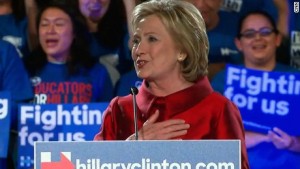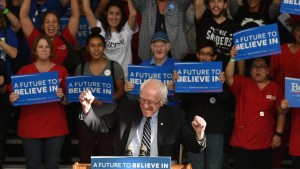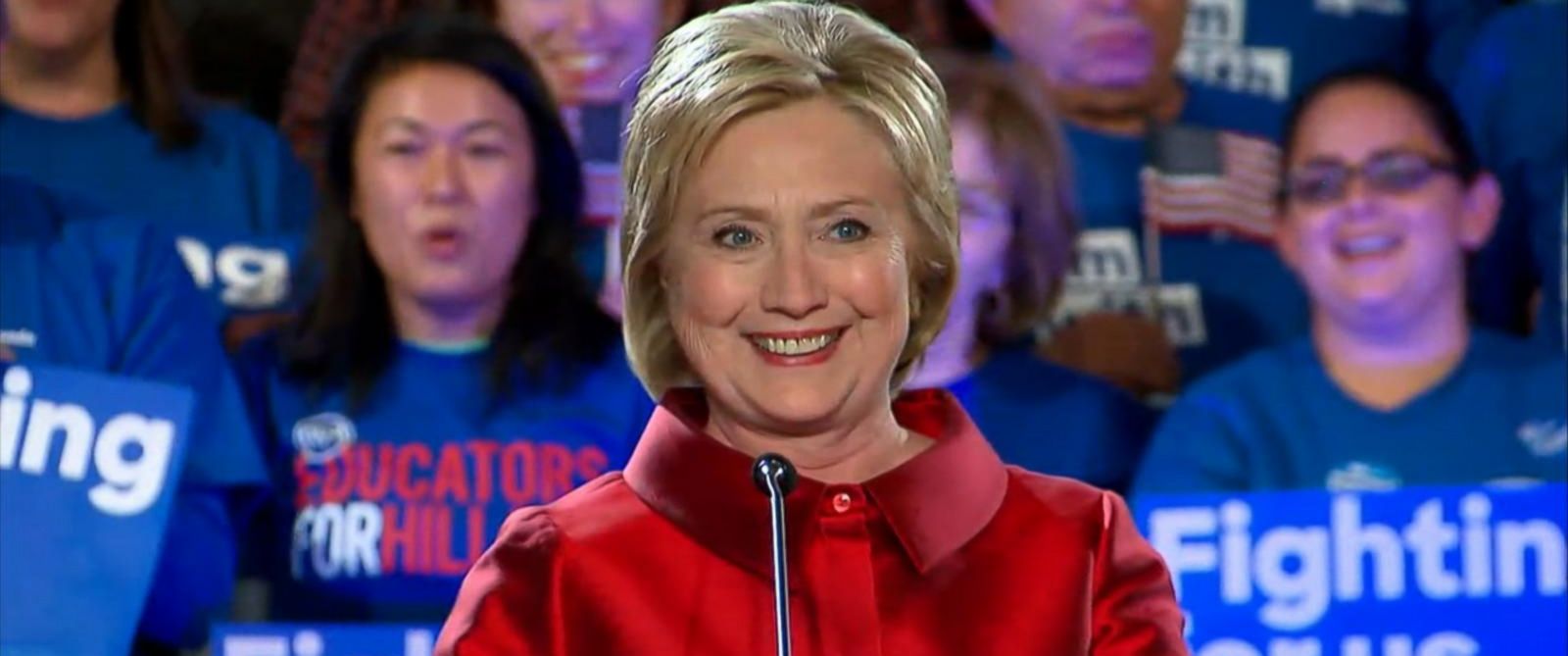
Washington, Feb. 21 – During last night’s victory speech in Nevada, presidential hopeful Hillary Clinton addressed the disability community, pledging to ensure that they would have the same opportunities as anyone else to participate in society.
“Don’t you think it’s time to face head-on the reality of systemic racism and invest in communities that have been left out and left behind,” the former Secretary of State said at Caesar’s Palace in Las Vegas. “That means reforming our criminal justice system, our immigration systems, ensuring that people with disabilities have the same opportunities to work and fully participate in our society!”
Fifty-six million Americans have a disability, seventy percent of whom are unemployed – though many want to work. According to Clinton’s response in the #PwDsVote 2016 Campaign Questionnaire, her plan to help people with disabilities get to work include a “post-graduation transition plan” with a “public-private partnership with employers designed to build on proven success stories like Project SEARCH and get more employers invested in providing competitive employment opportunities” for people with disabilities.
In addition, she said she “will adopt new legislation to fund employment demonstration grants for individuals with autism and other disabilities” and “push for passage of the bipartisan Transition to Independence Act, which would establish programs in 10 states focused on helping people with disabilities expand employment opportunities and build on the recently-enacted Workforce Innovation and Opportunity Act (WIOA).”
The top issue in the disability community is jobs. Government policies that help people with disabilities get and keep jobs are a win-win-win because they allow people with disabilities the dignity and financial benefits of work, help employers that need reliable talent and also grow our economy and save taxpayer money.

Across town in Henderson, Nevada, Bernie Sanders, who had hoped for a win in Nevada but came up short, did not mention people with disabilities by name but alluded to a large group of people, in which people with disabilities are part.
“We are going to create an economy that works for all of us, not just the top one percent,” the Vermont senator said. He also talked about a broken justice system, which disproportionately affects people with disabilities.
Minority voters played a large role in Nevada’s caucuses. People with disabilities, though not often thought of as a minority bloc the same way as African American or Latino/Hispanic voters, is the largest minority in the United States. In Nevada alone, 357,035 people have disabilities. Just four out of ten of its 171,600 working-age people with disabilities are employed. This creates poverty, powerlessness, and poor health. People with disabilities want the opportunity to have the dignity that jobs provide. 8,200 youth with disabilities, between the ages of 16 and 20, are preparing to enter the labor market. They have high expectations and deserve the opportunity to achieve the American dream.
When you include the family members of people with disabilities, more than half of the population is party of the disability community.
When Sanders won the New Hampshire primary earlier this month, he did give a shout out to people with disabilities.
“We must pursue the fight for women’s rights, for gay rights, for disability rights,” Sanders said in Concord, New Hampshire.
Sanders was the first candidate to complete the #PwDsVote 2016 Candidate Questionnaire, where he called for unlocking “the economic potential of persons with disabilities owned businesses.”
“I strongly believe we need to promote the talent of PwD business leaders and foster the success of a new generation of entrepreneurs to expand the economy and create millions of new jobs,” Sanders said in the questionnaire. “As President, I would expand access and opportunities for PwD-owned businesses to level the playing field and grow the economy in a fair way.”
Conversely, when Clinton lost the primary, she did not mention people with disabilities by name. She was the first to do so on a regular basis, beginning at the MSNBC Democratic debate prior to the New Hampshire primary and repeated several times including at a town hall with New England College students a few days later. Following her Nevada victory speech, Clinton gave a shout out for people with disabilities’ rights twice during an event in Houston.
As all of the presidential candidates vie for their parties’ nomination, reaching out to the disability community can meant the difference between winning or not. More than 50 percent of Americans report having a family member or close friend with a disability. Fifty-two percent of Democrats report that they or a loved one have a disability, and for Republicans, a smaller number of 44 percent report they have a disability. Surprisingly, Independents have the largest number of voters who say they have a disability, with 58 percent saying yes. This shows that swing voters with disabilities and their families are up for grabs.

[…] Clinton: Invest in People with Disabilities […]